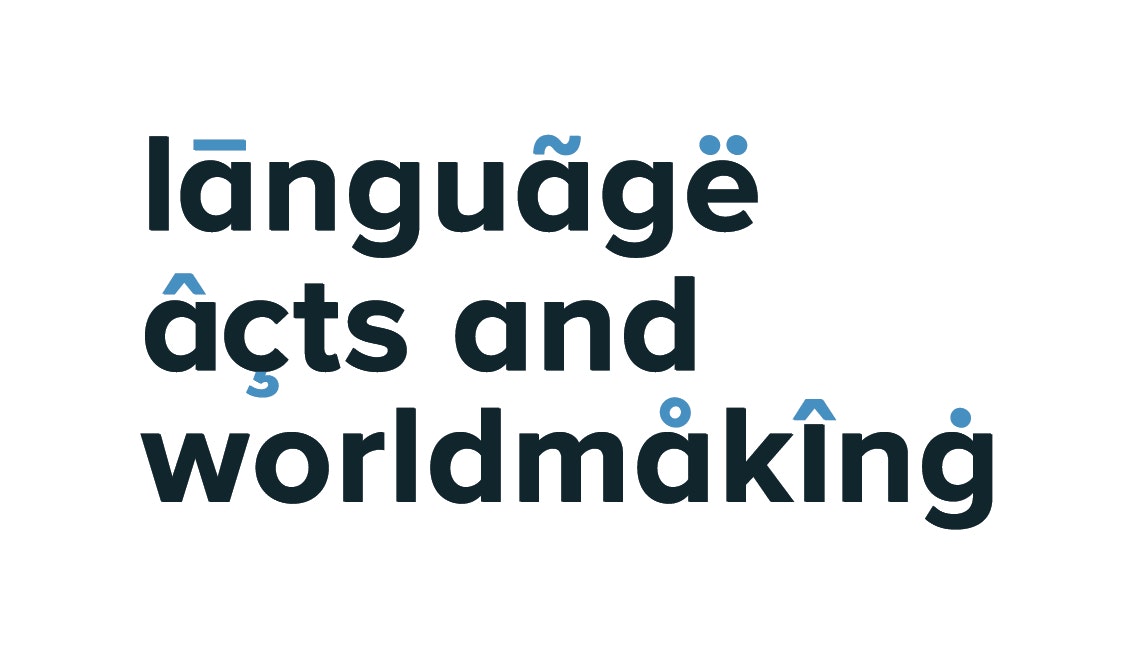UNBOUND
UNBOUND
"We allude to an unrestricted form, a word that in its expression goes beyond the print, with language of plants spreads colour, and in the drifting journeys of breeze reaches the images that give colour to flowers. In its boundless expression, earth is wind and in every pulse the wind melts its rocky essence in the sun and spreads its essence to the longing planets... not to keep, but to pour into the receptive space of the observer." ("Unbound expressions", Neda Dana-Haeri and Tajilli Keshavarz)
“Unbound” is a London-based collaborative project that explores contemporary poetry writing in the context of multilingualism and
across different media created by Jasmina Bolfek-Radovani in 2017. It has received funding from the AHRC-funded Language Acts and Worldmaking Small grants programme in 2018 and 2019, and The Centre of Poetry, QMUL. Other partners included Goldsmiths, University of Westminster, the Centre 4 Digital Music, QMUL, the Zagreb Cultural Information Centre, Galerija Makina, Pula, and Galerija Kranjcar, Zagreb.
Description du projet "Unbound" en français
Opis projekta "Unbound" na hrvatskom
Background
“I don’t think that one can be a bilingual poet", claims T S Elliot in an interview in The Paris Review in 1959 (Interview with TS Elliot, Paris Review, no. 1., 1959). As Elliot's citation shows, there is an implicit expectation on the poet (and writer in general) to choose one language in which s/he can write; this expectation is still very much present today.
Working against the statement based on a monolingual paradigm of thinking - one nation, one language, one identity - Jasmina has always been interested in the exploration of multilinguality in her poetry writing practice. In her essay “Unbound Lines: Writing in the Space of the Multilingual” she describes her experiences of living and writing in (between) her three languages:
"Before I started introducing multilinguality in my writing, I often felt that when I was writing in one of my languages I was losing “something”. That “something”, I came to fully understand this much later, was made up not only of notions and concepts, but also of sounds, images and smells, as well as the emotional, cognitive, pragmatic and kinetic resonances of the words and the worlds I live in. Each of my languages has its own archeology; one contains my sensory and sensual memories, the other inhabits my thoughts, my Self, my consciousness, the third plays an important role for me in terms of cultural identity. Each of the languages I inhabit has its own timbre, voice, rhythm; it has its own harmonies and melodies, its own colours. Each language I speak, mediates my experience(s) of the world differently. Only after I decided that I would not or did not have to choose a language in order to write, did I start writing poetry. In the process of writing poetry in three languages, I spend some time comparing and rewriting the English, French and Croatian versions of each of the poems, something that contributes to a more precise poetic expression in each of these languages." (Balkan Poetry Today, issue 2, 2019)
By using the multilingual method in her poetry practice, Jasmina seeks to challenge and subvert those expectations. The project Unbound allows her to explore these questions in the contemporary context and through the work with performance and performance technologies. She worked with a number of collaborators in order to explore these questions.
Performances, recitals
Jasmina Bolfek-Radovani has (co-)directed several performances and recitals between 2019 and 2023 as part of "Unbound". For full description of the Performances including videos and audio materials go here.
Talks, Panel charing
- Jasmina Bolfek-Radovani & Atau Tanaka, "Heart monologues: a cultural, sensorial and experimental journey", All Borders Blur, Mapping Intersections and Genre Crossings in UK Spoken-Word Poetries Since 1965, 11-12 November 2023, London.
- Talk "Reveries about language: challenges and opportunities of performing multilingual poetry", as part of the panel "Multilingual writing: strategies of translation, disruption and resistance", Languages Future online conference, 15 April 2021 (convened by Jasmina Bolfek-Radovani), King's College London. Other panelists: David Caddy, Maria Jastrzębska, Zoë Skoulding. Video of the talk available here.
- Jasmina Bolfek-Radovani, "My arrival to writing: on the (non-)sacrifice of language" (Audio recording), Panel on: Embodiments, Convenor: Debra Kelly, Languages Memory, King's College London, 13-14 June, 2018.
Further Reading
- Bolfek-Radovani, Jasmina, "Unbound Lines: Writing in the Space of the Multilingual", in: Balkan Poetry Today, issue 2, March 2019.
- Jasmina Bolfek-Radovani's reading of the trilingual poem “Reveries about Language” is accessible on Youtube. First time broadcast on the King’s College London radio show, 28/4/2016 (c.f. podcast on “Translation” from 17h:30min).
Acknowledgments
"Unbound" received funding from the Arts and Humanities Research Council-funded Language Acts and Worldmaking Small grants programme in 2018 and 2019.
Supported by:
Centre for Poetry, Queen Mary University of London (QMUL)
Arts and Culture, QMUL
Centre 4 Digital Music, QMUL
KIC, Zagreb (The Cultural information centre Zagreb)


